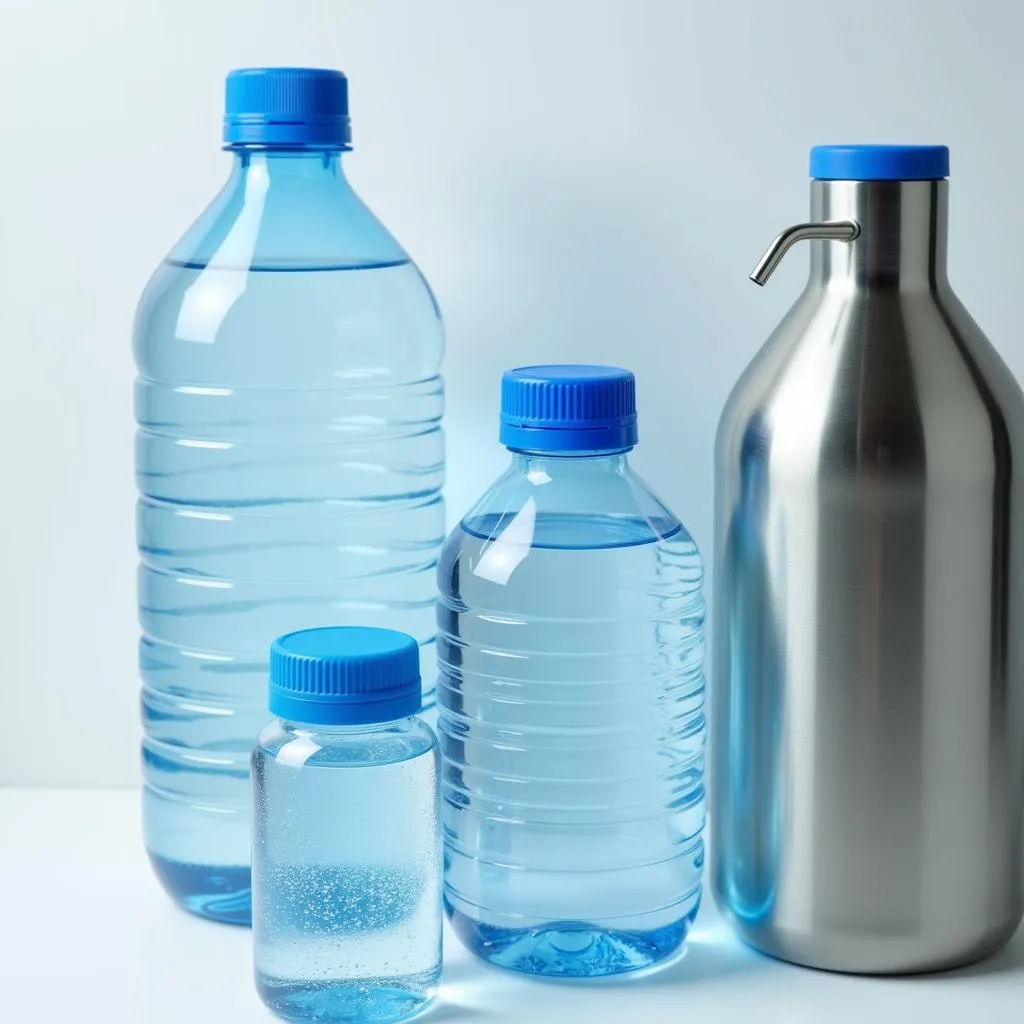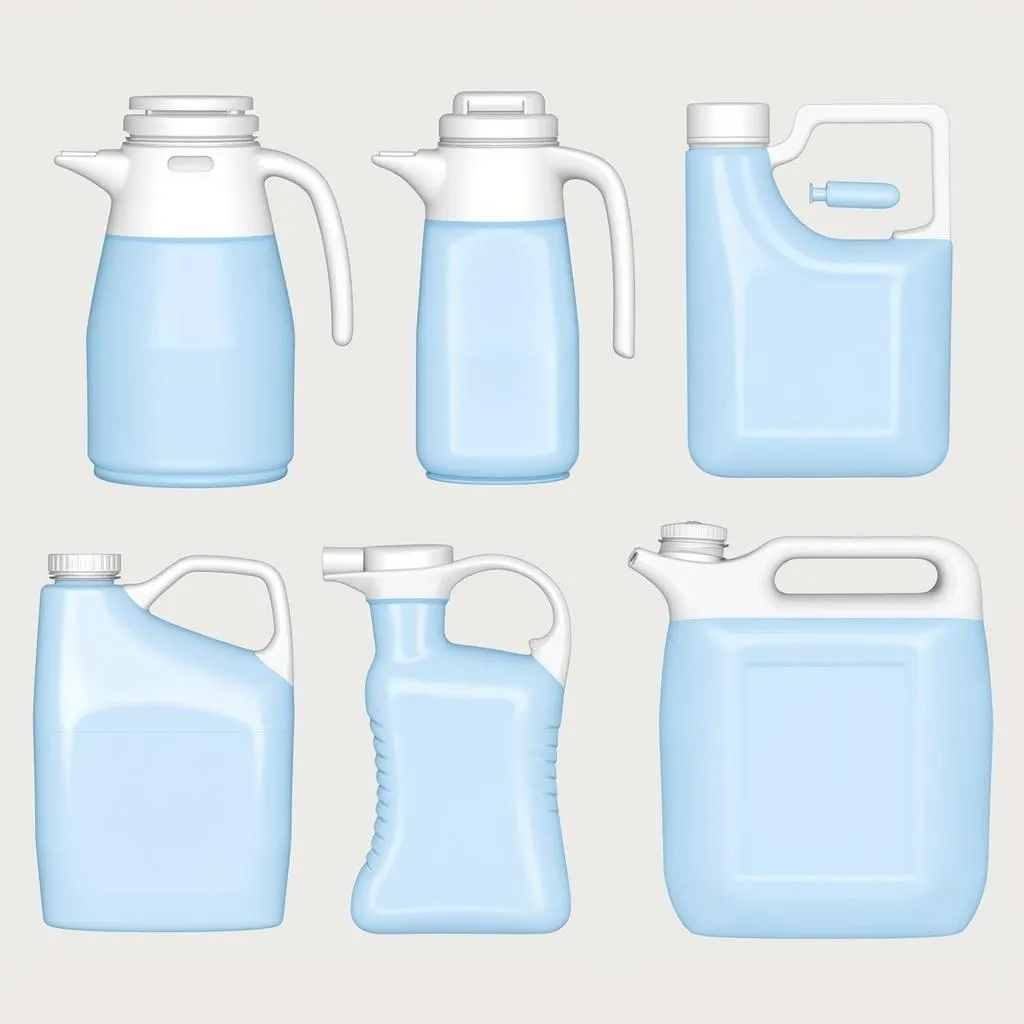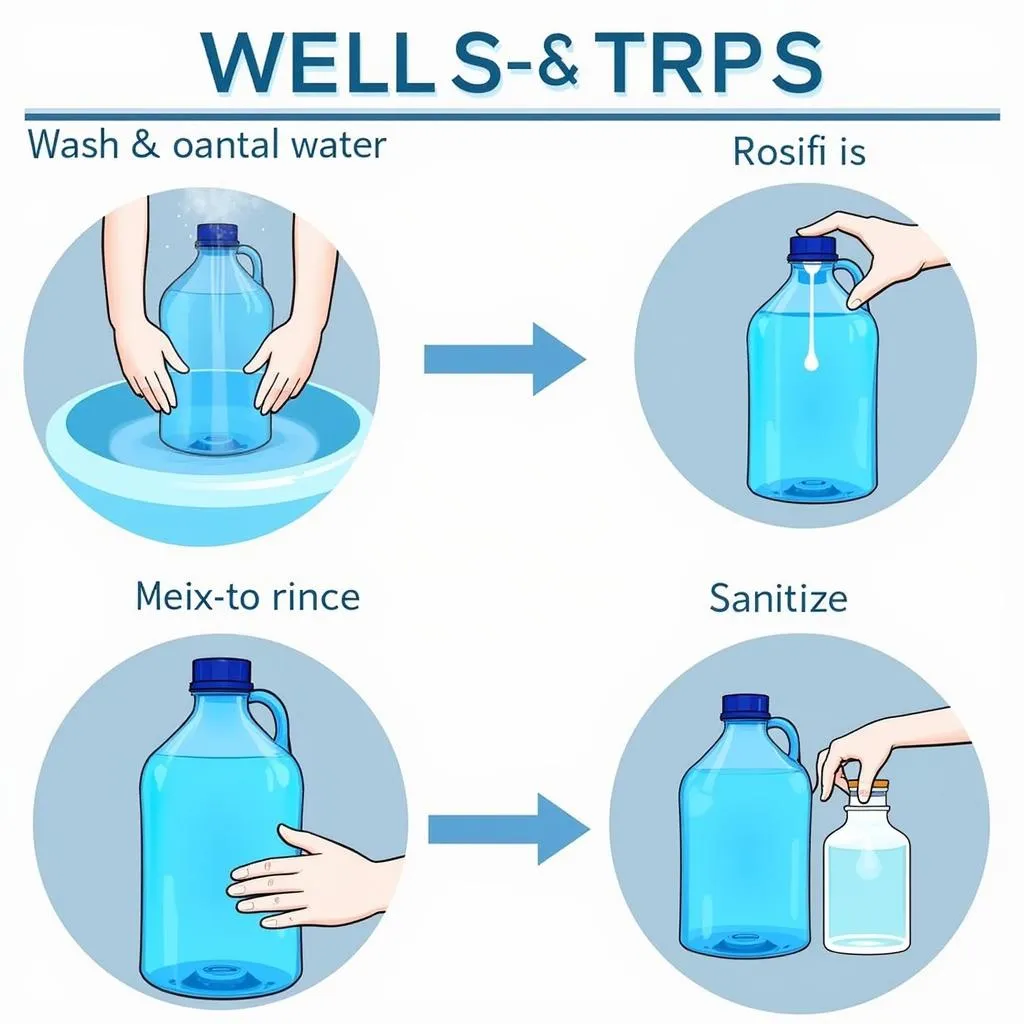Ensuring patients stay adequately hydrated is a fundamental aspect of quality healthcare. Hospital Water Jugs play a crucial role in this, providing a convenient and sanitary way to offer water to patients. However, not all hospital water jugs are created equal. Selecting the right type involves considering various factors, from material and design to hygiene and patient comfort. This guide explores the different aspects of choosing the perfect hospital water jug to promote hydration and maintain a sterile environment.
Material Matters: Durability and Safety
The material of a hospital water jug significantly impacts its durability, safety, and ease of cleaning. Here are the most common materials used:
- Plastic: Lightweight, shatterproof, and cost-effective, plastic jugs are a popular choice. Opt for BPA-free plastic to ensure patient safety and prevent any potential health risks associated with certain chemicals.
- Stainless Steel: Known for its durability and resistance to rust and corrosion, stainless steel offers a long-lasting and hygienic option. Though pricier than plastic, its longevity and ease of sterilization make it a worthwhile investment for many healthcare facilities.
- Glass: While glass is aesthetically pleasing and doesn’t retain odors or flavors, its breakability raises concerns in a hospital setting. Though tempered glass options exist, they come at a higher cost and might still pose a risk, especially around patients with mobility issues.
 Different materials used for hospital water jugs
Different materials used for hospital water jugs
Design Features: Functionality and Patient Comfort
Beyond the material, the design of a hospital water jug significantly influences its functionality and user-friendliness.
- Handle Design: Look for jugs with sturdy, ergonomically designed handles. This ensures a secure grip for both staff and patients, particularly those with limited dexterity or recovering from surgery.
- Spout Options: Jugs with a wide mouth are easier to fill and clean. Consider those with a drip-proof spout or lid design to prevent spills and maintain hygiene. Some models come with built-in measuring guides, helpful for monitoring patient fluid intake.
- Capacity Considerations: Hospital water jugs come in various sizes. Choose a capacity that balances patient needs with practicality. Smaller jugs are easier for individual patient use, while larger ones suit shared spaces or high-traffic areas.
 Hospital water jugs with different design elements for improved functionality and user experience
Hospital water jugs with different design elements for improved functionality and user experience
Hygiene is Paramount: Ease of Cleaning and Sterilization
Maintaining a sterile environment is crucial in any healthcare setting. When selecting a hospital water jug, prioritize ease of cleaning and sterilization.
- Dishwasher Safe: Opt for jugs that can withstand high temperatures and are dishwasher safe. This allows for thorough cleaning and disinfection, reducing the risk of contamination.
- Smooth Surfaces: Jugs with smooth interior surfaces are less likely to harbor bacteria and are easier to clean effectively. Avoid jugs with intricate designs or crevices that can trap dirt and grime.
- Sterilization Compatibility: If your facility uses specific sterilization methods, such as autoclaving, ensure the chosen water jugs are compatible.
Beyond the Basics: Additional Considerations
While the factors mentioned above are essential, additional considerations can further enhance patient comfort and satisfaction:
- Insulated Jugs: These keep water cold for extended periods, especially beneficial in warmer climates or for patients who prefer chilled water.
- Color Coding: Using color-coded jugs can help differentiate between water and other beverages, minimizing the risk of accidental ingestion of incorrect fluids.
- Patient Feedback: Consider gathering feedback from patients and staff about their preferences and experiences with different water jug designs. Their insights can provide valuable information for future purchasing decisions.
 Cleaning a hospital water jug to maintain hygiene
Cleaning a hospital water jug to maintain hygiene
Conclusion: Prioritizing Hydration and Hygiene
Choosing the right hospital water jug goes beyond simply providing a container for water. It’s about prioritizing patient well-being by offering a hygienic and user-friendly solution that encourages hydration. By carefully considering the material, design, hygiene, and additional features, healthcare facilities can make informed decisions to ensure they meet the needs of their patients and staff effectively. Remember, a well-chosen hospital water jug contributes to a more comfortable and healthier environment for everyone.
FAQ
Q: How often should hospital water jugs be cleaned?
A: It is recommended to clean and disinfect hospital water jugs at least once daily, or more frequently if visibly soiled or used by multiple patients.
Q: Can I use regular dish soap to clean a hospital water jug?
A: While regular dish soap can be used for initial cleaning, following up with a hospital-grade disinfectant is essential to ensure proper sanitation.
Q: What is the ideal capacity for a hospital water jug?
A: The ideal capacity depends on the intended use. For individual patient use, a 1-liter jug is generally sufficient, while larger 2-liter jugs are better suited for shared spaces.
Q: Are there any specific regulations regarding hospital water jug usage?
A: Specific regulations vary by location and healthcare facility. It’s crucial to consult with your local health department or infection control guidelines for specific requirements.
Q: Can patients use their own water bottles in the hospital?
A: While some hospitals allow patients to use their own water bottles, it’s essential to check with the facility’s policy.
Need help choosing the right hospital water jug for your needs? Contact us at Phone Number: 02437655121, Email: [email protected] Or visit us at: No. 298 Cau Dien Street, Minh Khai Ward, Bac Tu Liem District, Hanoi, Vietnam. Our dedicated customer support team is available 24/7 to assist you.